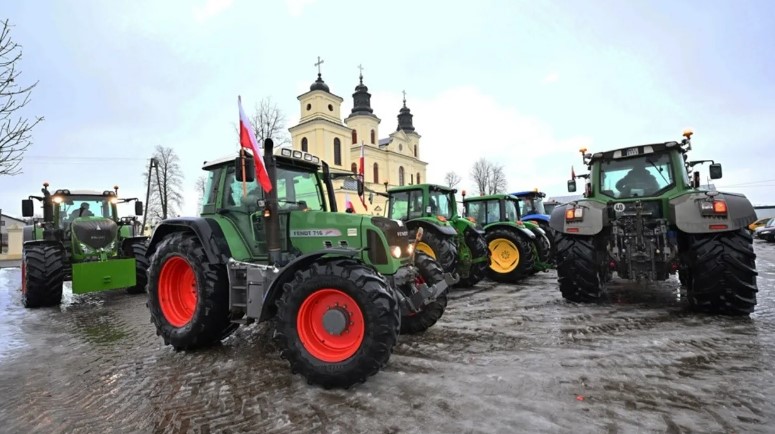
A nationwide farmers’ strike begins in Poland on Friday. On this day, almost all major roads in the country will be blocked, and demonstrations will also take place in many Polish cities. According to Business Insider, farmers are taking to the streets to protest against the European Green Deal and the opening of the market for agricultural products from Ukraine.
This will be the largest protest in Poland in recent years.
“We see that our previous actions did not bring any results and were ignored. So this time we will not limit ourselves to traveling on tractors, but will block the roads. And if we are ignored again, we will consider further forms of protest,” said Adrian Wazhyniak, spokesman for the Solidarity farmers’ union, which is organizing the protests.
According to him, farmers have two main demands: withdrawal from the European Green Deal in agriculture and restoration of customs tariffs on agricultural products from Ukraine.
Wroclaw, Dlugolęka connector. Na Dolnym Śląsku rolnicy będą blokować najważniejsze trasy dojazdowe do stolicy regionu. We Wrocławiu także planowana jest blokada ulic. #protestrolnikow pic.twitter.com/dwbGZZ4LTe
— farmer.pl (@farmer_pl) February 9, 2024
Similar demands have recently been made by farmers across Europe.
“Protesters often put forward different demands in different countries, due to the specifics of the sector in individual countries. However, they are united by opposition to the changes proposed in the European Green Deal, almost complete opening of the EU market for products from Ukraine, and dissatisfaction with contractual inequality within the supply chain,” said Jakub Olipra, Senior Economist at Credit Agricole.
The European Green Deal provides for restrictions on the use of pesticides and makes subsidies more dependent on the conditions in which animals are kept.
Farmers complain that this increases production costs and plays into the hands of producers from outside the EU, who are not subject to similar rules. In the future, this could lead to a decline in European agricultural production, they say.
After the protests in Brussels, European Commission President Ursula von der Leyen said that the ban on pesticides would not be introduced for now, although she believes the idea is correct.
“The Commission has announced its withdrawal from the pesticide ban, but it remains willing to return to this idea in the future. We see that they are trying to calm us down to return to this topic after the European Parliament elections. We can’t agree, it confirms our belief that we need to protest,” said Wazhyniak.
Claims to agricultural products relate to the level of quotas proposed in Brussels. Poles think they are too high.
“The starting point [for the quotas] is the last two years, when we have already seen a massive influx of goods from Ukraine. Restrictions should be set on the basis of imports from two years ago, as well as taking into account the period before the war [when the EU market was more closed to Ukraine],” Solidarnist said.

